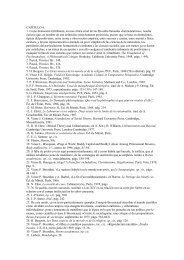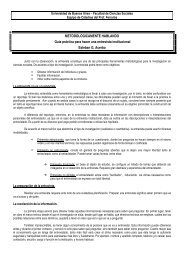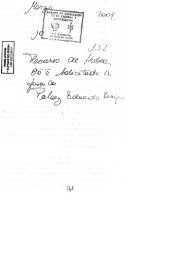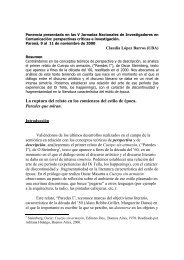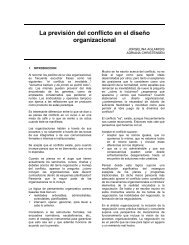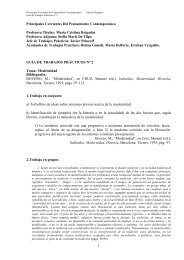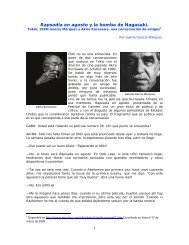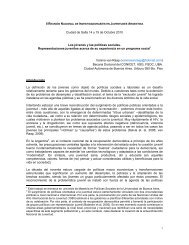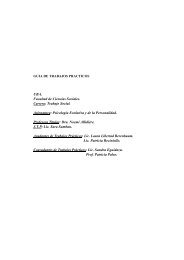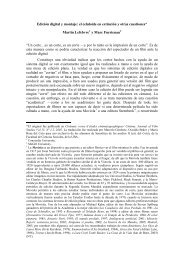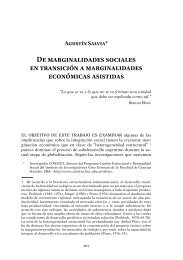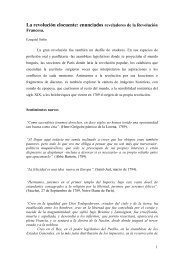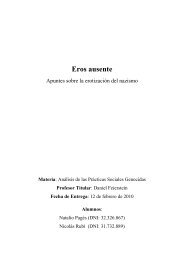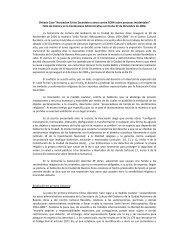Charisma Reconsidered
Charisma Reconsidered
Charisma Reconsidered
Create successful ePaper yourself
Turn your PDF publications into a flip-book with our unique Google optimized e-Paper software.
14<br />
Individual <strong>Charisma</strong> and the Problem of<br />
Leadership<br />
If partaking in the sacral is not enough to account for individual charisma, what<br />
does? Or is this an impossible question to answer because every answer serves to<br />
collapse a sui generis phenomenon into something else? The charismatic leader,<br />
Weber said, ‘must work miracles, if he wants to be a prophet. He must perform<br />
heroic deeds, if he wants to be a warlord’ (1978 [1922]: 1114). He added that<br />
. . . most of all, [the leader’s] divine mission must prove itself by bringing<br />
well-being to his faithful followers; if they do not fare well, he is obviously<br />
not the god-sent master. . . . the genuine charismatic leader is responsible<br />
to the ruled – responsible, that is, to prove that he himself is the master<br />
willed by God.<br />
(1978 [1922]: 1114)<br />
The proof comes in the form of baffling success.<br />
Weber did not disentangle the various sources of the expectations that the<br />
potential leader must meet, nor did he satisfactorily explain the connection of<br />
charisma to well-being. The following formulation, however, is consistent with his<br />
usages. The expectations of a given target audience, we may say, are not infinitely<br />
malleable. But they may be changed or formed by the words and miracles of the<br />
charismatic prophet, or by the actions of the hero. Thus, the promise of eternal<br />
life may have no role in the pre-existing theology of the target audience, but the<br />
audience may become persuaded by prophecy to accept such a promise. In cases<br />
where prophecy takes more or less traditional forms, such as shamanism or the<br />
prophets of Ancient Judaism, the matter is simpler: prophet and audience share<br />
expectations that are grounded in tradition or rationalized religious ideology. A<br />
charismatic career may develop in various ways: it may be transformed into a<br />
largely economic one, for example, or it may continue to be ‘charismatic’. But to<br />
continue to be charismatic, Weber insisted, the leader must continue to pass the<br />
tests put before him, or seek out tests that demonstrate his charisma: he ‘gains and<br />
retains it solely by proving his powers in practice’ (1978 [1922]: 1114). As Weber<br />
himself acknowledges, this is a model that centers on success. In its pure form, he<br />
says, charisma exists only in ‘statu nascendi’ (1978 [1922]: 246). When success<br />
deserts the charismatic leader, so does his authority.<br />
But there is a puzzle here about the relation between the phenomena of<br />
success and recognition and the quite distinctive effects that are attributed to<br />
charisma. Weber discusses the followers and the metanoia or internal transformation<br />
that is produced by the charismatic leader – a completely new orientation of<br />
all attitudes to the central problems of the world, as he puts it at one point (1978<br />
[1922]: 245). And this phenomenon seems to be poorly connected to the<br />
mechanical facts of ‘success’. To make the point starkly, the success of Napoleon<br />
JOURNAL OF CLASSICAL SOCIOLOGY VOL 3(1)



